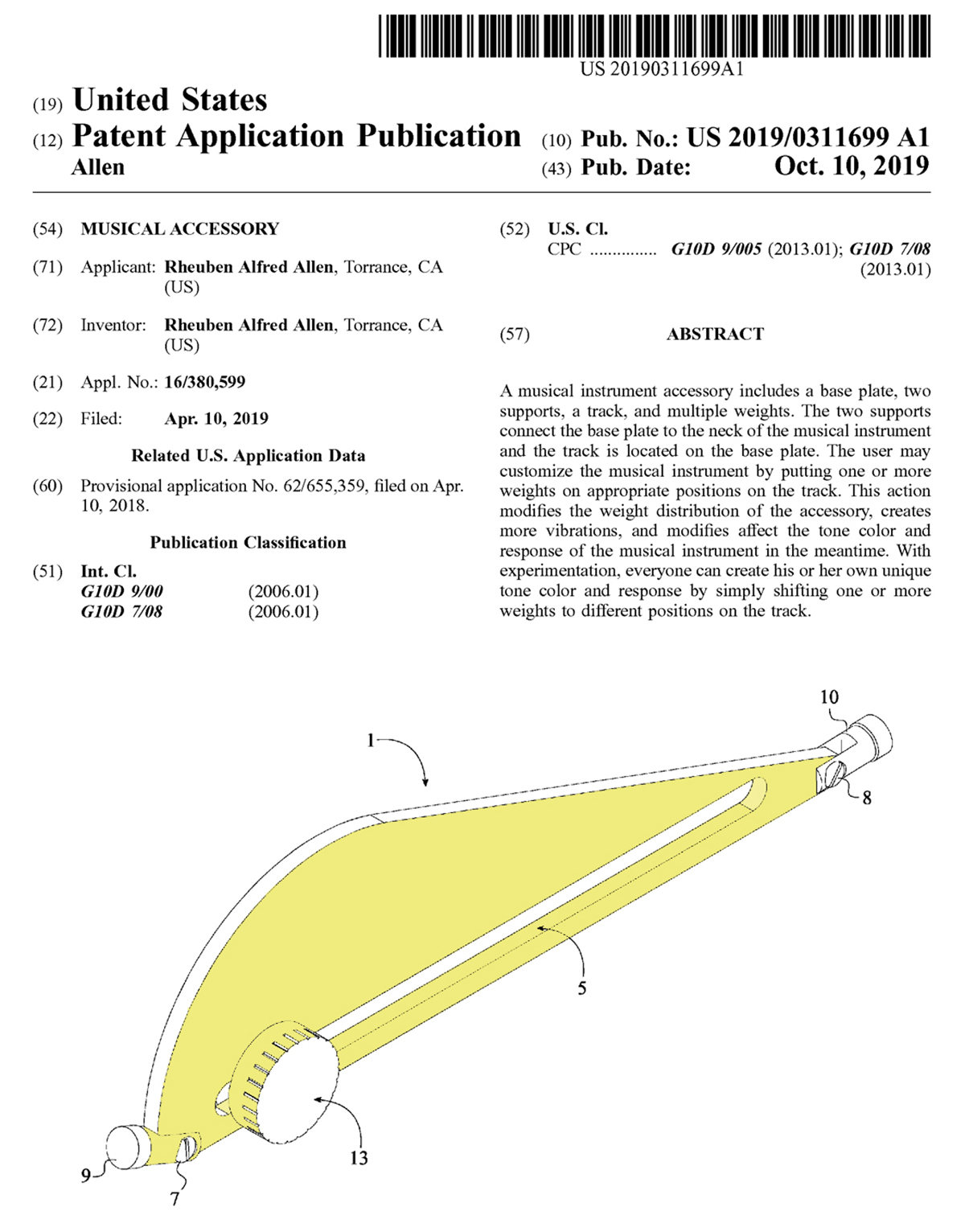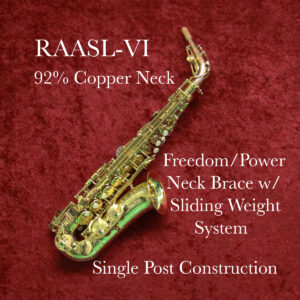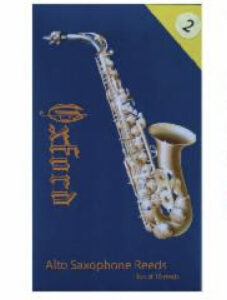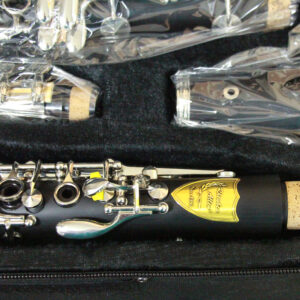Tenor Sax Weighted Neck by Rheuben Allen
$1,295.00
Tenor Sax Weighted Neck by Rheuben Allen – the Rheuben Allen Sliding Weight Neck System Brace 92% Copper Alto Sax Neck. This sliding weight system saxophone is patented by Rheuben Allen.
It offers the saxophnonist the ability to change the sound and response of the neck by simply sliding the seight along the neck brace. Geoff Nudell talks about the necks…
https://www.youtube.com/watch?v=tAFReKrGqqw

Description
Tenor Sax Weighted Neck by Rheuben Allen can change your saxophone life!
Brand Name: Rheuben Allen®
Model No.: RATSL-92VI
Product Description: Alto Sax Weighted Neck
Key: B-Flat Tenor
Features: 92% Copper with the Rheuben Allen Freedom/Power Neck Brace with Sliding Weight System *Rheuben Allen Patented Saxophone Neck Brace with Sliding Weight System (US Patent #US 10,565,967 B2)….. comes with 3 different weights, Heavy, Medium and Light (Made in the USA) …. Slides up & down the neck brace with one hand…..
Material: Brass, 92% Copper RA Freedom/Power Neck
Finish: Light Gold Lacquer
Geoff Nudell plays the Sax Neck Weight System by Rheuben Allen on his YAMAHA Custom Tenor Saxophone… As you can see there is a plastic divider between us and Geoff for safety…. he can play without his mask….
Geofff plays the 85% Copper Tenor Neck on his YAMAHA Custom Tenor Sax… Geoff uses the sliding weight in the slot next to the mouthpiece…
Carlos pays the Rheuben Allen Sliding Weight Tenor Sax neck on his Kenny G Tenor Saxophone… Carlos uses the weight in the slot next to the tenor…
Tenor necks are now available in 92% Copper, 85% Copper and Brass…. The 92% and 85% Rheuben Allen Copper Necks are for the main tube only. The brace, key and weights are brass.
Alto necks are available in 92% Copper and 95% copper only!
Geoff talks about the 92% Copper neck
RA Tenor Sax Neck Geoff 8 5
Tenor Sax Weighted Neck by Rheuben Allen allows the player to change tone and response while playing.
*Brass used in saxophones is usually 70% copper and 30% Zinc. Raising the copoer contient changes the tone quality and resopnase of the saxophone…..

Ernie Fields Jr. plays the Rheuben Allen Alto and Tenor Saxophone necks with Sliding Weight Neck System.

Mike also plays the Alto Sax Weighted Neck
Those of us who are saxophone players are constantly searching for a better reed, a better mouthpiece, a better ligature, a better neck, and perhaps even a better saxophone. Perhaps we have found some or most of that already.
I have known woodwind specialist Rheuben Allen for at least 40 years. I have worked and rehearsed with him. I have been to his repair shop for work on my horns, and I have bought his saxophone. But above all, Rheuben is an inventor.
His most current invention is his own version of the saxophone neck with a moving weight that changes the quality of sound depending on what position we put the weight. I have played several versions of the neck over the last few years as he was constantly improving the response.
This new neck is “the bomb.” It is available in a number of metals and lacquers. I know for sure it will make a big change in the response of your instrument and the sounds available to you.
Call Rheuben NOW !!!!
Mike Vaccaro
Copper is a chemical element with the symbol Cu (from Latin: cuprum) and atomic number 29. It is a soft, malleable, and ductile metal with very high thermal and electrical and vibration conductivity. A freshly exposed surface of pure copper has a pinkish-orange color. Copper is used as a conductor of heat and electricity, as a building material, and as a constituent of various metal alloy, such as sterling silver used in jewelry, cupronnickel used to make marine hardware and coins, and consistantly used in strain gauges and thermocuples, for temperature measurement.
Copper is one of the few metals that can occur in nature in a directly usable metallic form. This led to very early human use in several regions, from c. 8000 BC. Thousands of years later, it was the first metal to be smelted from sulfide ores, c. 5000 BC, the first metal to be cast into a shape in a mold, c. 4000 BC and the first metal to be purposefully alloyed with another metal, tin, to create bronze, c. 3500 BC.
Brass is an alloy of copper and zinc, in proportions which can be varied to achieve varying mechanical and electrical properties. It is a substitutional alloy: atoms of the two constituents may replace each other within the same crystal structure.
It is simlilar to Bronze, another alloy containing copper, with tin included instead of zinc; both bronze and brass may include small proportions of a range of other elements including arsenic, lead, phosphorus, aluminum, manganese and silicon. The distinction between the two alloys is largely historical,[3] and modern practice in museums and archaeology increasingly avoids both terms for historical objects in favor of the more general “copper alloy”.

Carlos Crull plays the Tenor Sax Weighted Neck with Adjustable Weight System Rheuben Allen 92% Copper neck.
Additional information
| Rheuben Allen Saxophone Necks | Alto Sax 85% Copper, Alto Sax 92% Copper, Tenor Sax Brass, Tenor Sax 92% Copper, Tenor Sax 85% Copper |
|---|





